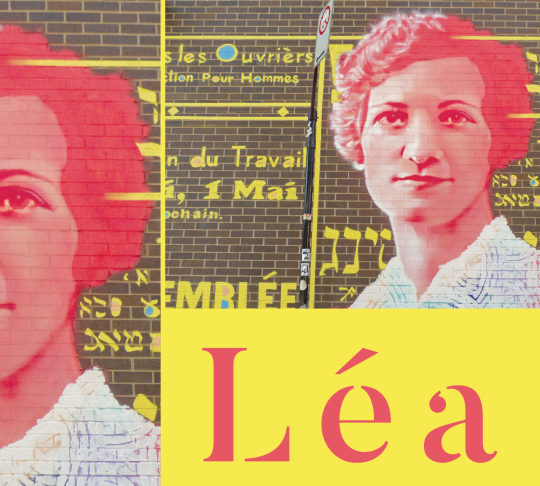Ariela Freedman feels a little sheepish that she was in her 40s before she heard of Léa Roback, the indefatigable fighter for the rights of workers and women in Quebec in the 1930s and ‘40s.
She’s atoning for that oversight by making Roback the heroine of her new historical novel Léa (Linda Leith Publishing).
Growing up in a suburban, middle-class Jewish family, Freedman regrets she came so late to Roback and, what’s more, the revolutionary social and political activism of many Jews in Montreal during that period.
“The Jewish Montreal I knew was kind of conservative, business-minded. The political causes they were involved in were Soviet Jewry and Israel,” said Freedman, a professor of literature at Concordia University.
Roback (1903-2000) was instrumental in unionizing women in the garment industry, leading a massive strike in 1937. She also fought for women’s suffrage, which was only achieved in Quebec in 1940.
A committed Communist until the late 1950s, she continued to battle for social justice of all kinds and peace, marching in the streets until her 90s.
Historical fiction is a departure for Freedman whose two previous novels, while not autobiographical, dealt with times and places with which she was familiar and were in the first person. Arabic for Beginners won the Jewish Public Library’s J.I. Segal fiction prize in 2018 and A Joy to be Hidden was shortlisted in 2020.
“It was a huge leap to write about a real person…a little intimidating because a lot is still not known about her,” she said.
Freedman was introduced to Roback during a walking tour of the old Jewish district around St. Laurent Boulevard, before the pandemic. It led her to delve into the life of this woman who defied the conventions of her time and community.
While Roback may be largely forgotten in the anglophone and Jewish worlds, she is memorialized as a fearless champion among francophone Québécoises.
“I was so fascinated when I learned about her; I was surprised I did not know such an inspirational woman,” said Freedman. “I felt she was the heroine I needed and that a lot of people need right now I think.”
Because Roback’s life was so long and full, Freedman decided to end her narrative in 1945. Her nearly 300-page book offers a portrait of what made Roback who she was: how her convictions were formed and, more speculatively, her disenchantments.
Born in Montreal to Polish immigrant parents, her large family moved to the village of Beauport near Quebec City when she was a toddler. There she became fluent in French, while speaking Yiddish at home.
They returned to Montreal when she was a teenager and Roback began working in a dyeworks where she gained insight into the poor conditions of workers. She then embarked on an adventurous peripatetic life, travelling to New York and Europe, studying at the University of Grenoble and settling in Berlin. She spent time in the Soviet Union.
In Germany she witnessed rising fascism and joined the Communist party in 1929 after a May Day protest was violently put down by police. Roback returned to Montreal in 1932, joined the illegal Communist Party of Canada (CPC), and opened the first Marxist bookstore in the city, which served as a clandestine meeting place.
While the CPC was no longer unlawful in Canada after 1937, it remained effectively so in Quebec under the repressive Padlock Law.
Freedman found a wealth of material that Roback, who never married, entrusted to the Jewish Public Library archives, even a lock of her hair. She kept meticulous notebooks, but it seems was too busy to get around to writing a memoir.
All was open to researchers except the letters between her and Fred Rose, the first and only Communist elected to Parliament in 1943 in the largely Jewish riding of Cartier. Roback was a campaign organizer for Rose, who was later arrested on espionage charges.
Freedman is struck by how Roback bridged the linguistic and cultural gap between Jews and francophones that so marked the period, gaining the respect of French-speaking Catholic workers often from rural areas.
Léa opens with the scene of 5,000 striking young women in the streets, Roback in the lead, is shouting and singing as confused baton-wielding police look on.
Freedman attempted to get inside the restless mind of Roback who, despite her gradual disillusionment after the Stalin atrocities, never lost her idealism.
The cover of Léa is the mural paying tribute to Roback that was on a wall on St. Laurent until recently. After repeated vandalism—perhaps because of the Yiddish words on it—the city recently removed it.
Freedman said Roback’s imperative to “do something” was a personal beacon during the darkest days of the pandemic. “I made chili for a homeless shelter, delivered for a food bank, started going to protests and marches.”







